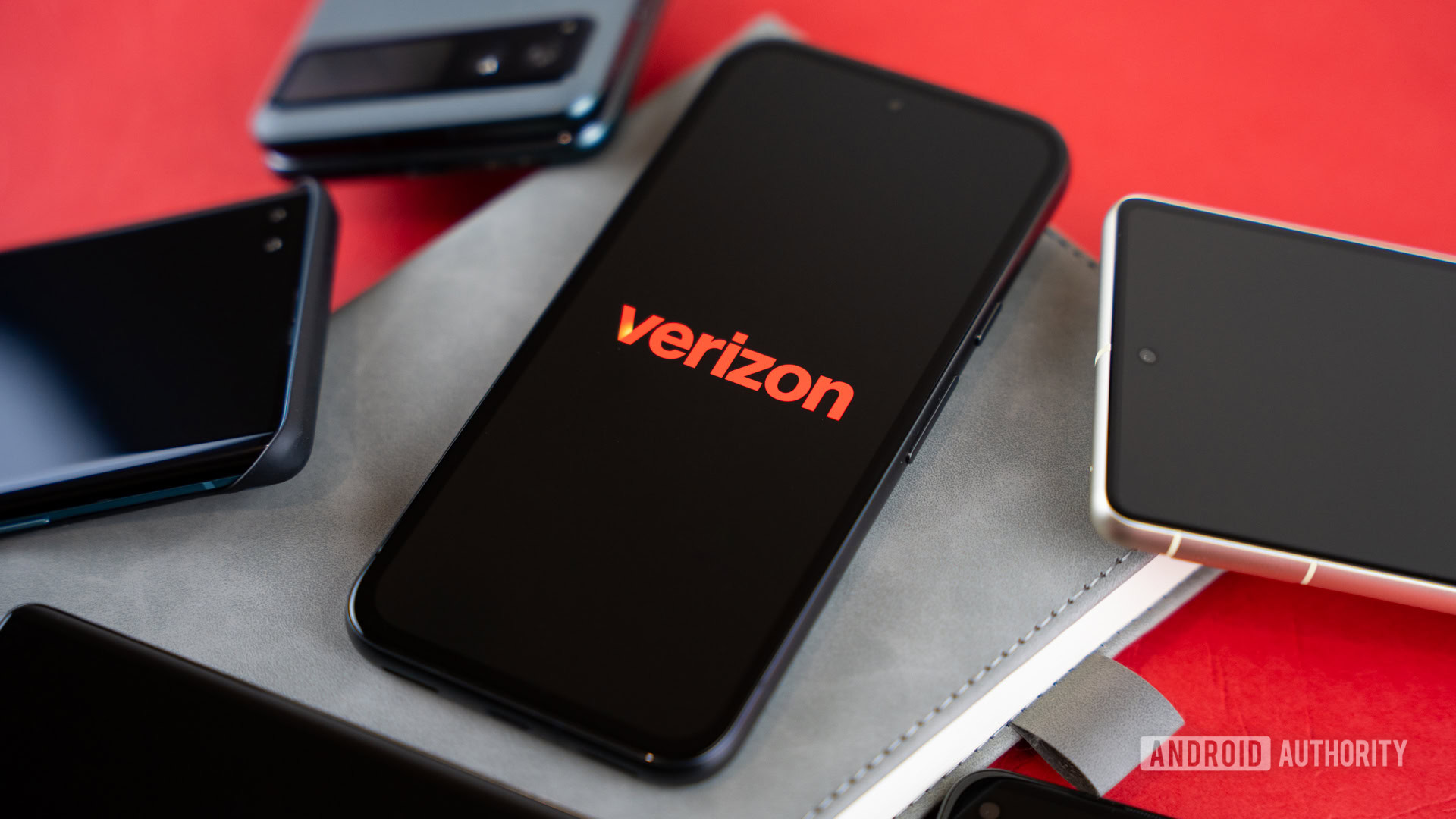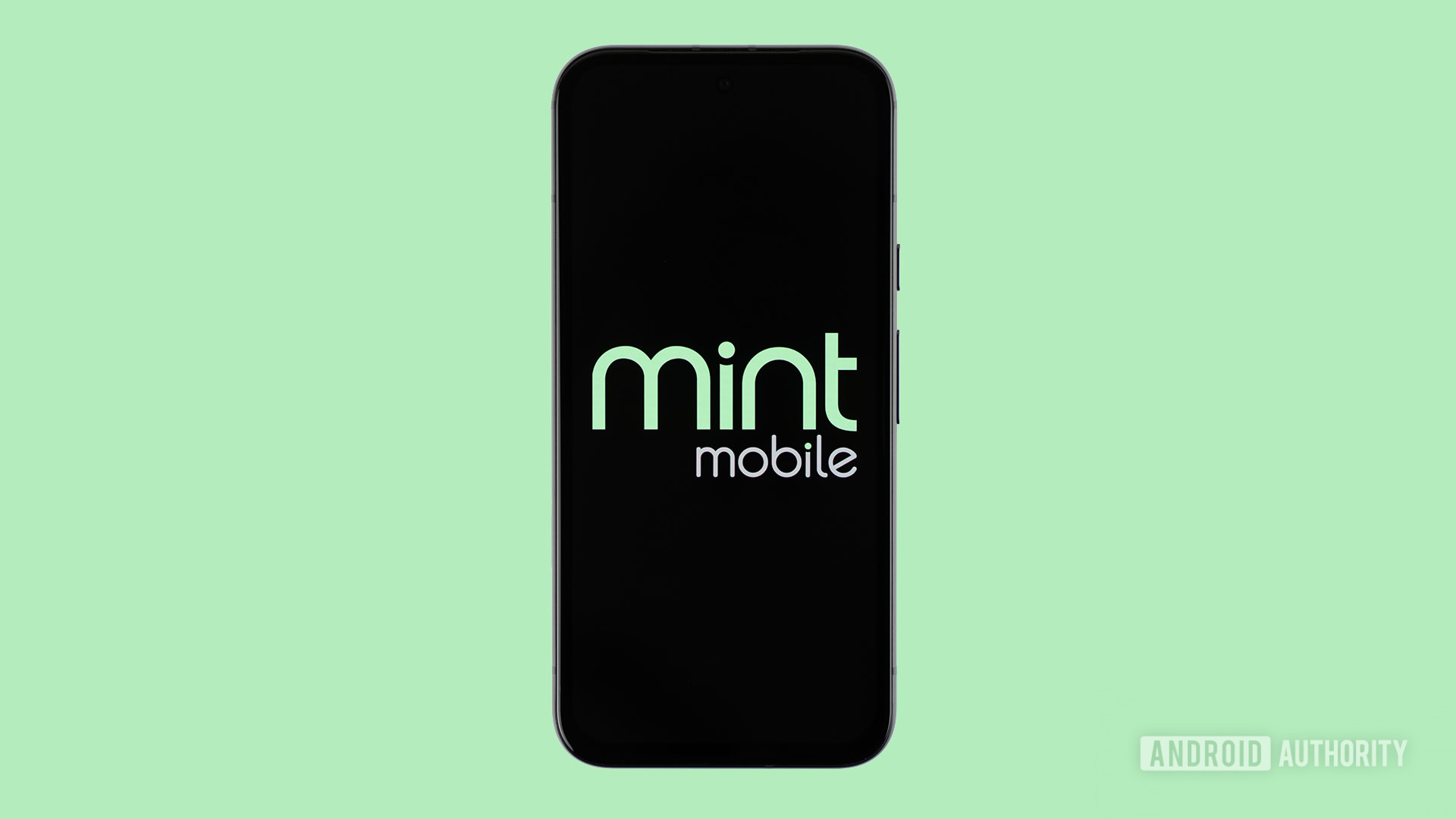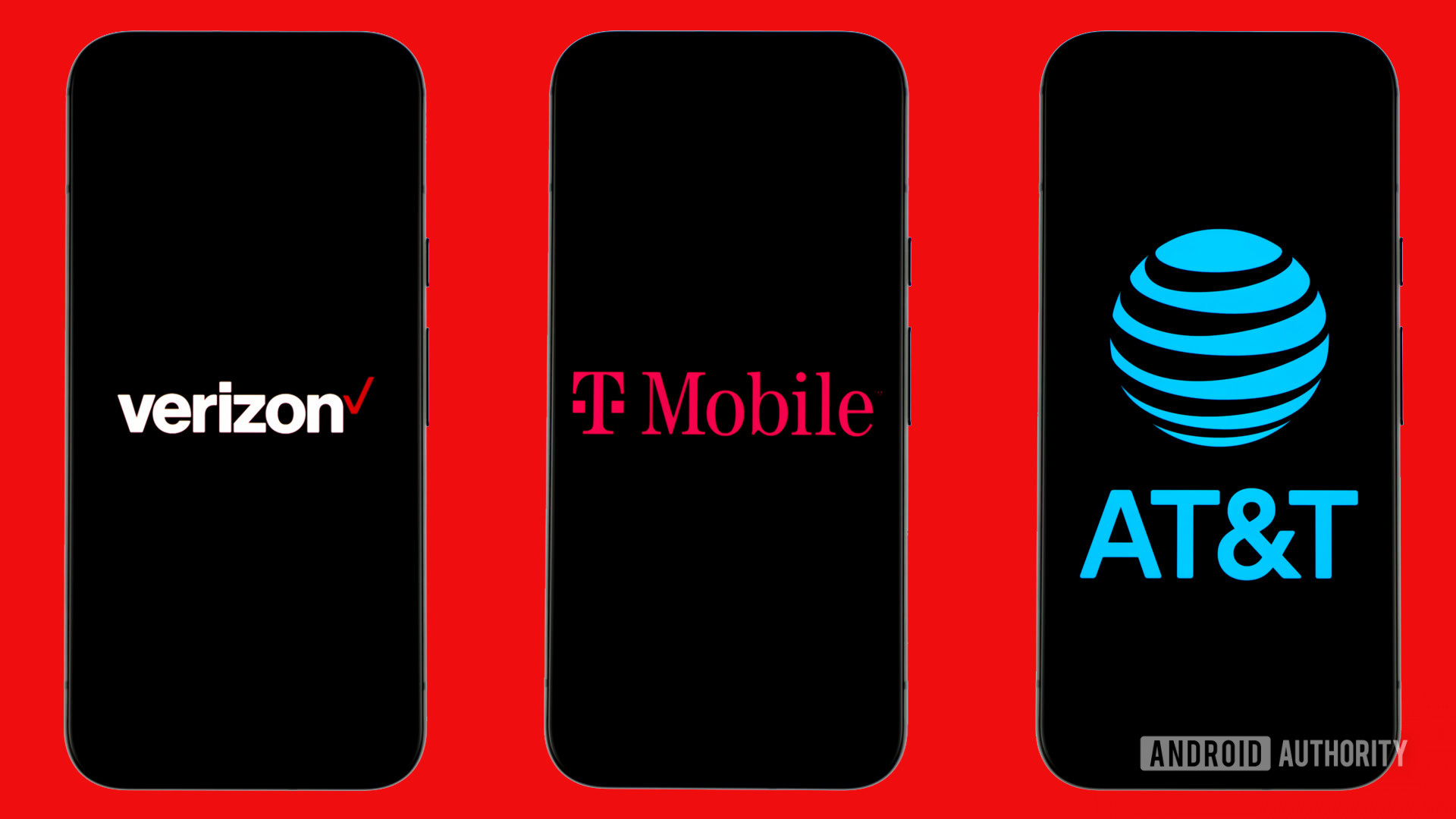Are you getting conned into an unlimited data plan you don’t really need?


Edgar Cervantes / Android Authority
More is always better, right? These days, you won’t even find limited data plans outside of prepaid options and we’re constantly being marketed on the idea we need unlimited data in today’s world. The reality is that many unlimited data plans aren’t even truly unlimited but even for those with truly unlimited plans, many consumers are paying for usage they simply don’t need.
An Ericsson Mobility Report released in June 2024 claims that the average smartphone user globally consumes around 17GB of data per month. To be fair, this is a global report and the US has its own trends. According to Statista, the average American uses 29GB a month. Still, these types of reports are generally skewed by ultra-heavy users or those who rely on a mobile connection as their primary gateway to the web. They also don’t account for age groups, so the actual figures could be well below this, especially for those who are in their 30s, 40s, or beyond.
Okay, so it might be a bit extreme to say you’re getting conned by your carrier, but it’s hard to deny that marketing tends to emphasize the need for bigger, better plans. The truth is you may not really need an unlimited plan, depending on your usage.
For years, I’ve managed a Cricket family plan shared with my sister, her husband, my mother, and one of our kid’s lines. Each user has different habits, yet all of them use 10GB or less on average, with only rare spikes. On the flip side, when I didn’t have great home internet, I easily used 100GB or more cellular data in a given month. These days I work from home and have great internet and so I easily blow through 2TB or more of data in a given month, and yet I still only use around 5-10GB mobile data on average. That point is, even if you’re a heavy data user that doesn’t necessarily mean you use an equally large amount of mobile data.
Let’s start by determining your data usage; then, we’ll discuss whether heavy data users would be better off with a prepaid or postpaid unlimited plan. Lastly, we’ll dive into specific experience-based recommendations that will fit your needs.
Do you really need unlimited data?
2 votes
How to determine your data usage
The first step is to find out how much data you use. Some carriers provide this information in account settings or in a dedicated app, but you can also check your usage directly from your phone.
For iPhone users: Go to Settings > Cellular and scroll down to Cellular Data. Next, look at the Current Period field, which shows your total data consumption for the current billing period.
For Android users: Instructions may vary by OS version and device, so we recommend looking up your specific model. Still, there are two common methods you can try. First, go to Settings > Connections > Data usage. If that doesn’t work, try Settings > Network & internet > SIMs > Your Carrier. This will typically provide information on both Wi-Fi and cellular activity.
Keep in mind that not all devices keep long data histories. If there is a log, try to review at least the last 3-6 months to get an accurate picture. Total your usage for each month, then divide by the number of months reviewed to determine your average.
Do you really need an unlimited data plan?

Edgar Cervantes / Android Authority
With a clearer picture of your average monthly usage, you may be surprised to find you use less data than you thought. Many of us are on Wi-Fi the majority of the time, so mobile data often only kicks in when Wi-Fi isn’t available.
While you might not need unlimited data, there are reasons you may want to keep an existing unlimited plan anyhow. For one, you may not have a choice. Most major postpaid plans are now unlimited. If you prefer limited data from Verizon, AT&T, or T-Mobile, you’ll need to switch to prepaid, which may mean giving up some postpaid perks.
Postpaid plans typically offer advantages like higher network priority and perks like free cloud storage or streaming. While some prepaid carriers come close, there are usually a few minor trade-offs. However, the best prepaid services now offer perks and priority levels nearly comparable to many postpaid plans. You can read more about this in our postpaid versus prepaid guide.
In many cases, we recommend choosing an independently operated prepaid carrier, as these often have better deals overall. Carriers like Visible and US Mobile offer plans with network priority close to postpaid levels.
The best options, depending on your data usage

Edgar Cervantes / Android Authority
There is no best plan for everyone, but below, I break down my recommendations based on your data consumption. It’s also worth mentioning I’ve used every carrier represented on this list within the last six months or sooner, with the exception of AT&T and T-Mobile. I stand behind my recommendations but keep in mind your actual experience can vary depending on where you live in the US.
5GB or under:
If you use less than 5GB of data, there’s really no reason to stick with a postpaid account unless you have a family plan with members that consume considerably more data. While postpaid might come with some streaming perks and other benefits, you’ll be able to afford to sign up for your own subscriptions or device insurance separately, as you will typically save around $600 a year over a single line with any of the big three postpaid carriers.
While there are numerous data plans in this entry-level tier, not all of them are created equally, so we’ve rounded up our top 3 recommendations:
- Mint Mobile 5GB plan: If you don’t mind paying upfront, Mint’s 5GB plan costs $180 per year ($15 per month). Using T-Mobile’s network, it offers excellent coverage and priority similar to T-Mobile’s Essentials plan.
- Tello 2GB plan: Powered by T-Mobile’s network, Tello offers a simple experience for $10 a month, including 2GB of data, unlimited talk and text, and free international calls to 60+ countries from the US.
- US Mobile Light Plan: For $10 a month, this plan offers 2GB of data with unlimited talk and text on your choice of network access with the option to switch between networks for a small fee (or free for the first two uses).
The former runs on all three networks, while the latter runs on Verizon. For a deeper look, check out our Visible vs US Mobile guide.
5GB to 15GB:
Unless you’re a power user there’s a pretty solid chance your usage falls somewhere into this bracket. Though options are limited, here are two standout plans within this range:
- Mint Mobile 15GB plan: You’ll pay $240 upfront for this plan, which works out to about $20 a month. You’ll get unlimited talk, text, and 15GB of data, all on T-Mobile’s network.
- US Mobile Unlimited Flex: US Mobile Unlimited Flex is technically an unlimited plan, but at $210/yr ($17.50 a month) — it’s worth it anyhow. Here’s how it works: you get 10GB of priority data that will get near postpaid speeds. After that, you’ll get speeds closer to 1Mbps until the following month.
15GB to 30GB:
For usage around 15-30GB, an unlimited plan is typically the best option. Should you go with a prepaid or postpaid unlimited plan? It depends. If you’re looking to save money, a prepaid plan is usually a better choice than entry-level postpaid options like Verizon MyPlan Welcome or T-Mobile Essentials. These lower-tier postpaid plans tend to offer similar priority and perks to many reputable prepaid carriers. However, if you truly want and need extra perks, a mid-tier postpaid plan may be the better fit.
Here are the three plans we recommend at this level from the big three:
- Verizon MyPlan Unlimited Plus: For as low as $45 a line for four lines, this plan includes unlimited priority data, 30GB hotspot access, and even the option to add heavily discounted streaming perks and more for $10 each.
- AT&T Unlimited Extra EL: With 75GB of priority data, 30GB hotspot access, and pricing as low as $40.99 per line for four lines, you’ll find this is a great option for those with solid AT&T coverage.
- T-Mobile Go5G: With 100GB of premium data and a monthly price tag of $38.75, Go5G is not only one of the cheaper postpaid options we recommend, but it also has perks like Netflix Standard with ads for free and a free six-month trial to Apple TV Plus.
Prefer the idea of saving with a prepaid carrier? These plans will provide as close to a postpaid carrier experience as possible while still saving you cold, hard cash:
- US Mobile Unlimited Starter: This plan works with all three major networks and will cost you just $25 a month or as little as $22.50 a month if you pay for a whole year’s service all at once. You get unlimited priority data, meaning that US Mobile will provide the fastest speeds possible. These will likely be a bit under what you’d get with postpaid, but the difference should typically be small enough not to make any noticeable impact.
- Mint Mobile Unlimited: While it’s labeled as unlimited, this plan technically is limited to 40GB a month, as you’ll be slowed to basically sub-1Mbps speeds once you use up the limit. Still, if you don’t mind paying $360 upfront, you’ll get reliable service that is well within your usage range at a price that works out to just $30 a month.
- Visible Standard: I often don’t recommend Visible Standard, simply because for $15 more a month, you’ll get superior service with Visible Plus. Still, Visible Standard can currently be yours for $20 a month, locked in for two years, and gives you truly unlimited data, including unlimited hotspot access. The catch? You’ll always get the lowest priority tier when connecting to the Verizon network. If you consume a lot of data but don’t mind doing it at slower speeds (typically 1 to 5Mbps in my personal experience with Visible Standard), this can be a heck of a deal.
More than 30GB:

Edgar Cervantes / Android Authority
If you use 30GB or more, stick with an unlimited plan. If you want the convenience of getting service directly from the big carriers, here are the plans we recommend from each carrier:
- Verizon MyPlan Unlimited Plus or better: In the previous section I recommend this same plan, as it provides unlimited priority data and everything you’d ever want for as low as $45 a line for four lines. That said, if you want extras like 10GB of international data, double the hotspot access for a total of 60GB, and access to the best device promotions and pricing, you’ll want to consider Ultimate. Be aware it’s not cheap, at $55 per line for four lines.
- AT&T Unlimited Extra EL or better: Again, just because you consume a lot of data doesn’t necessarily mean you need the most expensive plan, so Extra EL is probably the best fit for most at $40.99 per line for four lines. Of course, if you want unlimited premium data, you’ll want to spring for Premium PL, which will run you $50.99 per line for four.
- T-Mobile Go5G or better: For many consumers, Go5G offers more than enough with 100GB of premium data, free Netflix access, and a price tag as low as $38.50 a month per line for four. Still, if you want unlimited priority data and extras like free Apple TV Plus, you might want to consider Go5G Plus or Go5G Next. The latter offers pretty much the same features as Plus but with the addition of Hulu with ads and the ability to upgrade yearly to a new device.
Want to dive even deeper? Check out our guides to the best AT&T plans, best Verizon plans, and best T-Mobile plans.
Want as close to a carrier experience as possible but looking to also get a great deal unlimited? Here are the prepaid unlimited plans we most recommend:
- Metro Flex Plus: For $43.75 a month per line for four lines, Metro by T-Mobile provides unlimited talk, text, and data as well as some great perks like 25GB of hotspot access, unlimited texting in over 200 countries, and 100GB of Google One cloud access. You also get Amazon Prime for free, which makes this plan an exceptional value.
- Google Fi Unlimited Plus: Speeds reduce to 256kbps after 50GB, but for $40 per line for four or more users, there’s a lot to like. You also get hotspot access, YouTube Premium, Google One storage, and international data features that easily best even the big carriers.
- US Mobile Unlimited Premium: For $44 a month (or $ 32.50 a month if paid upfront annually) you get unlimited talk, text, and priority data. That’s not all, as you get a free Apple Watch plan and several other extras like international calling perks.

